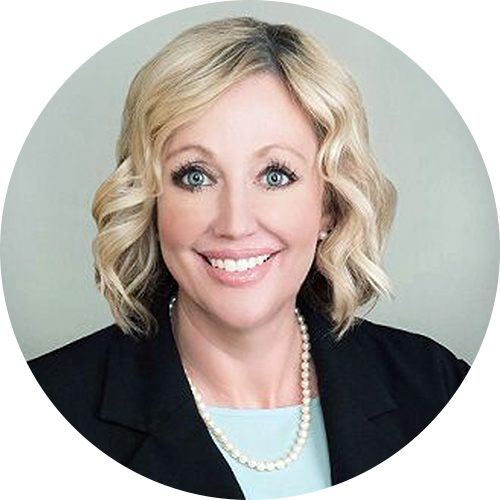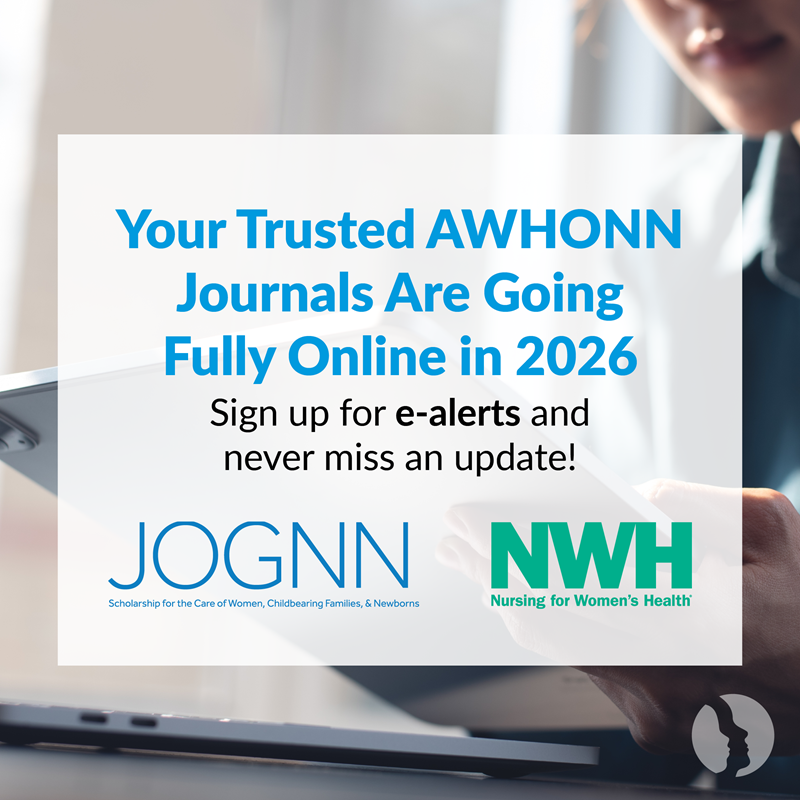Professional/Risk Management Resources
- Perinatal Clinical Nurse Educator: Clinical Competencies and Education Guide
This guide outlines the framework for the development of perinatal clinical educators by describing didactic educational content and competency outcomes. *****Free on Website and as an online supplement to journals***** - Guidelines for Professional Registered Nurse Staffing for Perinatal Units
Promote quality care by planning nurse staffing for your perinatal unit based on Guidelines for Professional Registered Nurse Staffing for Perinatal Units from the leading authority in perinatal nursing: AWHONN. - Standards for Professional Nursing Practice- 9th Ed.
Adopted by nurses and healthcare organizations worldwide these expert developed and reviewed benchmarks are the standards for nursing care of women and newborns. The AWHONN Standards summarize the specialty’s core principles of nursing practice. - Nursing Care Women and Babies Deserve
This statement puts nursing ethics into action for perinatal, neonatal and women’s health nurses. Based on ANA’s Code of Ethics, Nursing Care Women and Babies Deserve provides nurses with core elements of ethical nursing practice for our specialty and corresponding examples of ethical practice in action. - Women’s Health Clinical Nurse Specialist Competencies
The Women’s Health CNS Competencies describes the entry-level competencies for all graduates of master’s and doctorate of nursing practice (DNP) programs and postgraduate programs, preparing the women’s health CNS for future certification and licensure. - Respectful Maternity Care Implementation Toolkit
The Respectful Maternity Care Implementation Toolkit provides you with the tools and resources you need to implement the 10-Step “C.A.R.E. P.A.A.T.T.H.” within your organization. Make the commitment today to provide Respectful Maternity Care to every patient, every interaction, every time! - Respectful Maternity Care Framework and Evidence-Based Guideline
The Respectful Maternity Care Framework and Evidence-Based Clinical Practice Guideline provides evidence-based approaches to support the implementation of RMC processes. - AWHONN SBARs
AWHONN SBARs explores racial bias and offers ideas on how to implement small changes that have a big impact.
- Anaphylactoid Syndrome of Pregnancy Journal CNE
This journal CNE activity provides knowledge on recognition and response to Anaphylactoid Syndrome of Pregnancy (ASP).
- Maternal Fetal Triage Index (MFTI) Education
The Maternal Fetal Triage Index (MFTI) educational module educates perinatal nurses about obstetric triage basics—what triage means in obstetrics, what the nurses’ role is, and how a systematic approach can be beneficial to improve the process of triage and outcomes. This interactive learning module introduces AWHONN’s new Maternal Fetal Triage Index, a five-level acuity classification index, describing how it is used to prioritize a woman’s urgency for provider evaluation. - Obstetric Triage Education
This interactive case study program prepares nurses orienting to the triage unit to care for women presenting with five common conditions — early term labor, rupture of membranes at term, decreased fetal movement, preterm labor symptoms and hypertension. Nurses learn how assigning acuity for each case with the Maternal Fetal Triage Index (MFTI) guides continuing care throughout the triage unit stay.
- Advanced Cardiac Life Support in Obstetric Settings
- Access to Heathcare
- Gender Bias in Women’s Health, Obstetric, and Neonatal Nursing
- Midwifery
- Mood and Anxiety Disorders in Pregnant and Postpartum Women
- The Role of Unlicensed Assistive Personnel (Nursing Assistive Personnel) in the Care of Women and Newborns
- Breast Cancer Screening
- Confidentiality in Adolescent Health Care
- Emergency Contraception
- Rights and Responsibilities of Nurses Related to Reproductive Health Care
- Tobacco Use and Women’s Health
- Elective Induction of Labor
- Health Information Technology for the Perinatal Setting
- Intimate Partner Violence
- Marijuana Use During Pregnancy
- Nursing Care of Incarcerated Women During Pregnancy and the Postpartum Period
- Women’s Cardiovascular Health
- Optimizing Outcomes for Women With Substance Use Disorders in Pregnancy and the Postpartum Period
- Role of the Registered Nurse in the Care of the Pregnant Woman Receiving Analgesia and Anesthesia by Catheter Techniques
- Health Care Decision Making for Reproductive Care
- Infertility Treatment as a Covered Health Insurance Benefit
- The Use of Chaperones during Sensitive Examinations and Treatments
- Human Trafficking
- Insurance Coverage for Contraceptives
- Sudden Unexpected Postnatal Collapse in Healthy Term Newborns: AWHONN Practice Brief Number 8
- Prevention of Newborn Falls/Drops in the Hospital: AWHONN Practice Brief Number 9
- Maternal and Newborn Safety During the Administration of Brexanolone: AWHONN Practice Brief Number 10
- Lower Extremity Nerve Injury in Childbirth: AWHONN Practice Brief Number 11
- Obstetric Patient Safety (OPS): OB Emergencies Workshop 3rd Edition
The Obstetric Patient Safety (OPS): Obstetric Emergencies Workshop uses simulation to practice recognizing and responding to patients during an obstetric emergency.
Note: Please contact an OPS Instructor prior to purchasing this 3rd Edition program. Additional fees may vary based on the individual OPS instructor. Visit www.awhonn.org/ops for more information. - Advanced Fetal Monitoring Course, 5th Ed
AWHONN’s advanced fetal heart monitoring course is designed for perinatal clinicians who previously completed the AWHONN Intermediate Fetal Monitoring Course, a comparable fetal monitoring educational program and/or who hold certification or added credentials in fetal heart monitoring. It may be used to support preparation for certification examinations.
- Lisa Miller 2024 Expert Insights CNE Bundle
Each webinar in this series is designed to equip you with critical knowledge and practical skills to improve patient care and outcomes.























